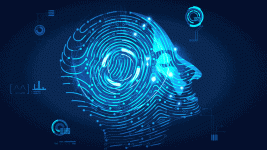Intellectual property is still relevant
Last week, I argued intellectual property was no longer relevant. This week, I argue the opposite. Despite the challenges posed by artificial intelligence, intellectual property (IP) rights continue to play a crucial role in fostering innovation and protecting creative works. In case you've already read,
https://cybersafetynet.net/does-int...rtificial-intelligence-generating-content-no/, fasten your seat belt. I am making the opposite argument here.
View attachment 2005
Human creativity remains central
While AI can generate content, human creativity and ingenuity are still at the core of innovation. Humans design, develop, and refine AI systems, making critical decisions about their architecture, training data, and application. The creative process often involves human-AI collaboration, where AI serves as a tool to augment human capabilities rather than replace them entirely. Therefore, traditional
intellectual property protections remain relevant for human contributions to AI-assisted works.
Legal frameworks are adapting
IP laws are not static. They are dynamic. They evolve to address technological advancements. Courts and policymakers worldwide are actively working to modernize intellectual property laws to account for AI's impact. For instance, some jurisdictions are considering new categories of IP rights specifically for AI-generated works, ensuring that valuable innovations receive appropriate protection while maintaining the integrity of existing IP frameworks.
Economic incentives are still necessary
The fundamental purpose of IP rights - to incentivize innovation and creativity - remains relevant in the AI era. Companies and individuals investing significant resources in developing AI technologies and AI-generated works need assurance that their investments will be protected. Without IP protections, cutting-edge AI research and development will decline.
Attribution and ownership challenges still exist
While AI complicates issues of authorship and inventorship, solutions are emerging. For example, some propose attributing AI-generated works to the individuals or companies responsible for creating and deploying the AI system. This approach maintains the concept of human authorship while acknowledging AI's role.
IP rights help manage AI ethics and accountability
As AI systems become more sophisticated, IP rights can serve as a mechanism for ensuring accountability and ethical use. By attributing ownership and responsibility for AI-generated works, intellectual property frameworks can help address concerns about the potential misuse of AI technologies.
Protection against infringement remains critical
Even in an AI-driven world, the need to protect against unauthorized use or reproduction of creative works and inventions persists. IP rights provide a legal framework for creators and innovators to defend their work against infringement, whether by humans or other AI systems[2].
International cooperation is strengthening IP protections
Global efforts to harmonize IP laws and address AI-related challenges are underway. International organizations and treaties are working to establish consistent approaches to AI and IP, ensuring that intellectual property rights remain enforceable across borders[2].
Summary
In case your brain is melting, let me summarize here. AI presents unique challenges to traditional IP concepts. It does not negate the need for intellectual property protection. Instead, it underscores the importance of adapting and strengthening IP frameworks to address the complexities of AI-generated works. By evolving alongside technological advancements, IP laws can continue to foster innovation, protect creative endeavors, and provide essential economic incentives in the age of artificial intelligence.


